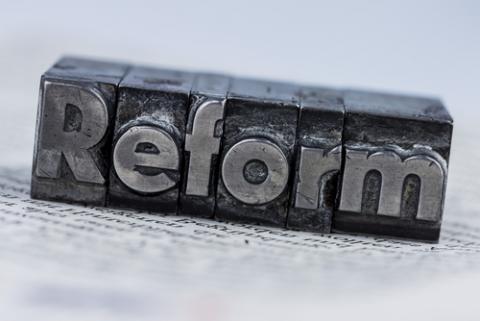
A new programme for structural reform in Moldova has been launched by the United States Agency for International Development (USAID), aiming to contribute to structural reforms to regulate and stimulate business and trade in the country. The programme's promoters aim to promote Moldovan exports to the European Union market over the next four years, and to make the business environment more attractive to investors.
The USAID Programme for Structural Reform has four basic pillars: facilitating trade, improving the business climate, improving communication between different economic actors, and creating a trade facilitation fund.
"This programme represents the recent effort of the US Agency for International Development to work with the Republic of Moldova in the context of the formation of a more open, dynamic, innovative, inclusive, competitive, private-sector national economy and aligned to the modern trade rules," said the US ambassador to the Republic of Moldova, James D. Pettit.
According to programme director Douglas Muir, the initiative is intended to stimulate the economic growth of the Republic of Moldova and will provide Moldovan producers with the necessary support to bring their products to the common market of the European Union.
EU DCFTA
"Moldova is very close to the world's largest market, and recently you have signed a Free Trade Area Agreement with the European Union. In my opinion, your country has a chance to become a major exporter on the EU market,” the official said, pointing out that, despite economic downturns, Moldova's economy grew by 4% in 2016.
The Programme for Structural Reforms in Moldova provides for increased support for small and medium enterprises (SMEs), which have a significant share in the economy, accounting for 60% of all jobs.
"We hope that by providing public-private dialogue, by increasing the capabilities of business associations, by strategic communication and informing SMEs about their rights, together we will have beautiful results over four years," said the Executive Director of the Small Business Alliance Moldova (FSEA), Liliana Busuioc.
Other actions foreseen in the programme include reducing bureaucracy, including by improving the work of the Customs Service and implementing innovative digital solutions such as eGovernment and the One Stop Shop.
Cutting red tape
"We are counting on this programme in implementing the national trade facilitation plan for 2017-2020. We want very much the elimination of delays and bureaucratic procedures, we want to simplify and harmonize the export and import processes," said Economy and Infrastructure Minister Chiril Gaburici, adding the programme would contribute to the development of the digital economy, including by assessing Moldova's level of preparedness for e-commerce.
The programme pays special attention to the fight against corruption, seen as one of the main obstacles to economic development.
"The simplification of business processes and the passage of digital paper transactions are two ways to combat corruption directly. Probably, these are also the most effective ways of doing so, as they reduce from the outset any possibility of committing a corruption act," said USAID Mission Director Karen Hilliard.
The USAID Programme for Structural Reforms in Moldova also aims to help the Republic of Moldova fulfil its commitments under the Association Agreement with the European Union and the Trade Facilitation Agreement with the World Trade Organization. The budget of the programme is $11.2 million over four years.
The European Union also works to support private sector development and trade in the Republic of Moldova through a series of programme’s implemented under its EU4Business initiative, improving access to finance, helping SMEs move into foreign markets and providing training to build up business skills. Specific technical help is available to Moldovan SMEs to make sure they can make the most of the country’s free trade agreement with the EU.
